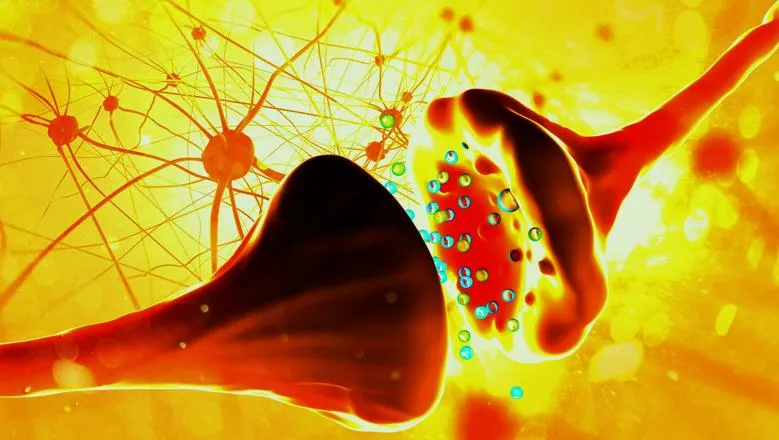In this Comment we have systematically and scientifically critiqued the initial umbrella review on serotonin and depression to demonstrate that the authors presented no new analyses of the data, used their own criteria for assessing research quality, interpreted findings differently from the original research, and made fundamental errors pertaining to the scientific method. We hope that this Comment will enable a more balanced discussion on the topic.
Dr Sameer Jauhar, Senior Clinical Lecturer in Affective Disorders and Psychosis at King’s IoPPN and the lead author of this response
19 June 2023
A response to “The serotonin theory of depression: a systematic umbrella review of the evidence”
A new Comment led by researchers at the Institute of Psychiatry, Psychology & Neuroscience (IoPPN), King’s College London critiques the umbrella review “The serotonin theory of depression: a systematic umbrella review of the evidence”.

The Comment has critiqued an umbrella review, published in Molecular Psychiatry in July 2022 by Moncrieff et al., that concluded there was no consistent evidence of a relationship between serotonin and depression. At the time, the review was covered by the media and its criticism of the use of antidepressant medication gained wider public awareness (it has been downloaded over one million times from the website). The claims of the authors were bold, and therefore merited consideration by those in the scientific community.
Written by 36 experts in the field, the Comment is published as part of a new series of articles in Molecular Psychiatry.
The authors of the Comment have subsequently explained that the serotonin theory of depression was not proposed to suggest that people experience the condition because of an imbalance in a single chemical in the brain (serotonin), but rather as an example of brain changes that are present in depression that could help explain how some antidepressants work. They highlight several key failings which they believe contributed to the original 2022 study reaching incorrect conclusions:
1. Weaknesses in the methodology
The 2022 review was methodologically flawed and inconsistent with the conventional umbrella review process. Unlike most umbrella reviews, where authors extract data and analyse it themselves, the authors summarised existing results with no new analysis.
Umbrella reviews are meant to guard against citing papers based on authors’ preferences, but this review included selective individual studies, which should not have happened.
Furthermore, the criteria for grading the quality of evidence were arbitrarily set by the authors. Using their method, studies were set as low quality to begin with and some criteria, such as sample size, would not meet stringent criteria within existing experimental medicine and imaging studies, for reasons such as ethical concerns.
The authors also appear to have ignored studies showing a link between serotonin and depression, as described below.
2. Ignoring tryptophan depletion findings.
Some of the most robust evidence linking the serotonin system to depression comes from studies where the levels of one of the precursors of serotonin (trytophan) are lowered; this leads to reduced serotonin in the brain together with the occurrence of depressive symptoms in those with a history of depression. This was clearly articulated in the larger of the two reviews the authors cite in the section on tryptophan depletion but the authors misreported these findings, emphasising that tryptophan depletion does not cause depression symptoms in healthy volunteers, with little mention of effects in those with depression.
3. A simplistic interpretation of studies measuring serotonin receptor in the brain using imaging.
The authors of the 2022 review report findings of a meta-analysis of research on binding to serotonin receptors and interpret the results as suggesting higher levels of serotonin in depression. They ignore basic facts regarding the pharmacology of serotonin receptors, and more sophisticated (and replicated) findings that are at odds with their message.
The authors make further factual errors when commenting on imaging studies of serotonin transporter binding, that conflict with the data in the reviews they cite. Their conclusions therefore differ from those of the scientists who conducted these reviews (some of whom are co-authors of the Comment).
The Comment therefore states that it is difficult to draw any conclusions from the 2022 review as no new research is presented, the research that is included is presented incorrectly, and there are fundamental errors in the scientific method throughout the paper.
Perhaps the worst flaw of the 2022 review is that it casts doubts on the effectiveness of antidepressant medication, without presenting any evidence in support of this conclusion. There is incontrovertible evidence that antidepressant medications are effective in treating people with clinically-significant depression. The decision to use antidepressants, with or without psychological therapy, is taken by the person with depression jointly with their treating physician.
Professor Carmine Pariante, a co-author of the commentary and expert in the neurobiology and treatment of depression
For more information, please contact Louise Pratt (louise.a.pratt@kcl.ac.uk)
‘A leaky umbrella has little value: evidence clearly indicates the serotonin system is implicated in depression’ Jauhar et al. was published in Molecular Psychiatry (DOI: 10.1038/s41380-023-02095-y).



